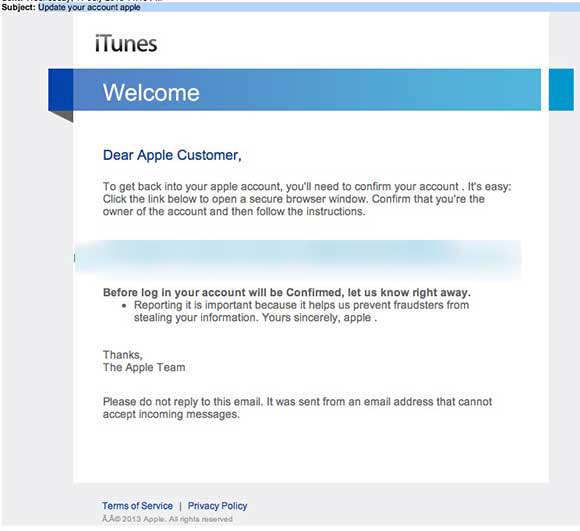Sonora, CA…From the Tuolumne Sheriff’s Dept…Apple users need to be aware of an ongoing phishing campaign that appears to be ramping up efforts the past couple days. Scammers have found a clever way to generate phishing websites and they’re after your Apple ID and password. Tuolumne County residents have reported receiving numerous calls within the past few days from several people working under the pretense of Apple Inc.
The scammer calls and advises the icloud account has been compromised and requests that the customer go to a desk top computer to proceed. Once the customer requests information to be sent to authenticate the issue, the scammer hangs up.
Residents have also received emails and phone messages with caller ID showing a 225 and 913 area code requesting a call back immediately to the main number given to resolve the issue.
Apple Inc. warns customers that if a message is seen while browsing the web that your iPhone, Mac, or other Apple device has a virus, or someone claiming to be from Apple calls and asks for your account name and password, you’re likely the target of a scam.
Scammers use any means they can. Fake emails, pop-up ads, text messages, even phone calls to try to trick you into sharing personal information, such as your Apple ID password or credit card information.
Scammers spoof phone numbers and use flattery and threats to pressure you into giving them information, money, and even iTunes gift cards. Always verify the caller’s identity before you provide any personal information. If you get an unsolicited call from someone claiming to be from Apple, hang up and contact them directly.
Scammers try to copy email and text messages from legitimate companies to trick you into entering personal information and passwords. Never follow links or open attachments in suspicious or unsolicited messages. If you need to change or update personal information, contact the company directly.
Apple Inc. shares tips that can help you identify phishing scams concerning their company…
* The sender’s email address or phone number doesn’t match the name of the company that it claims to be from.
* Your email address or phone number is different from the one that you gave that company.
* The message starts with a generic greeting, like “Dear customer.” Most legitimate companies will include your name in their messages to you.
* A link appears to be legitimate but takes you to a website whose URL doesn’t match the address of the company’s website.*
* The message looks significantly different from other messages that you’ve received from the company.
* The message requests personal information, like a credit card number or account password.
* The message is unsolicited and contains an attachment.
Apple Inc. requests that you report any suspicious email by forwarding the message to Apple with complete header information.
These email addresses are monitored by Apple, but you might not receive a reply to your report.
* If you receive what you believe to be a phishing email that’s designed to look like it’s from Apple, please send it to reportphishing@apple.com.
* To report spam or other suspicious emails that you receive in your iCloud.com, me.com, or mac.com Inbox, please send them to abuse@icloud.com.
* To report spam or other suspicious messages that you receive through iMessage, tap Report Junk under the message.
Attached are some examples of phishing emails sent by scammers masquerading as genuine Apple Inc. inquiries.



